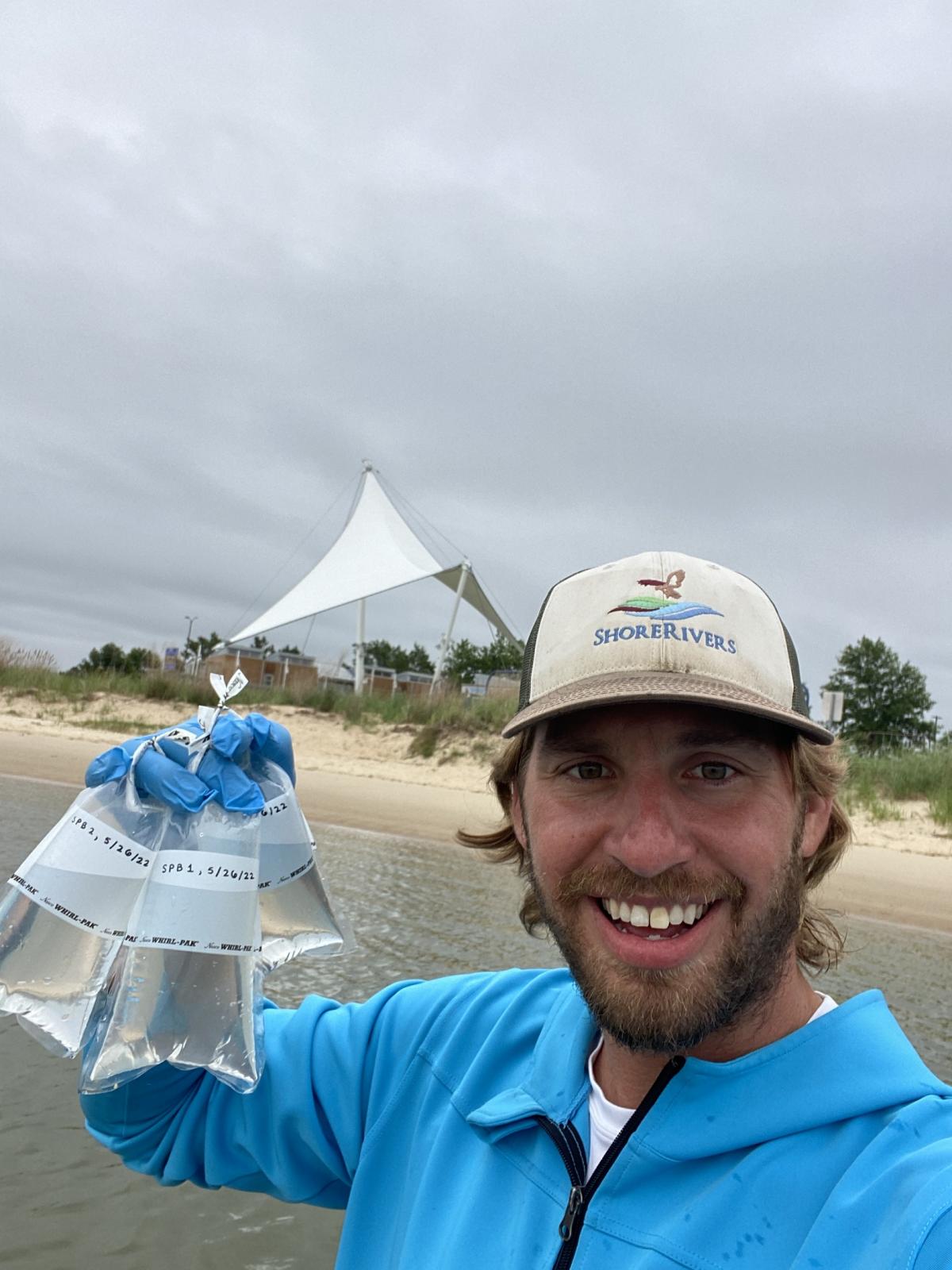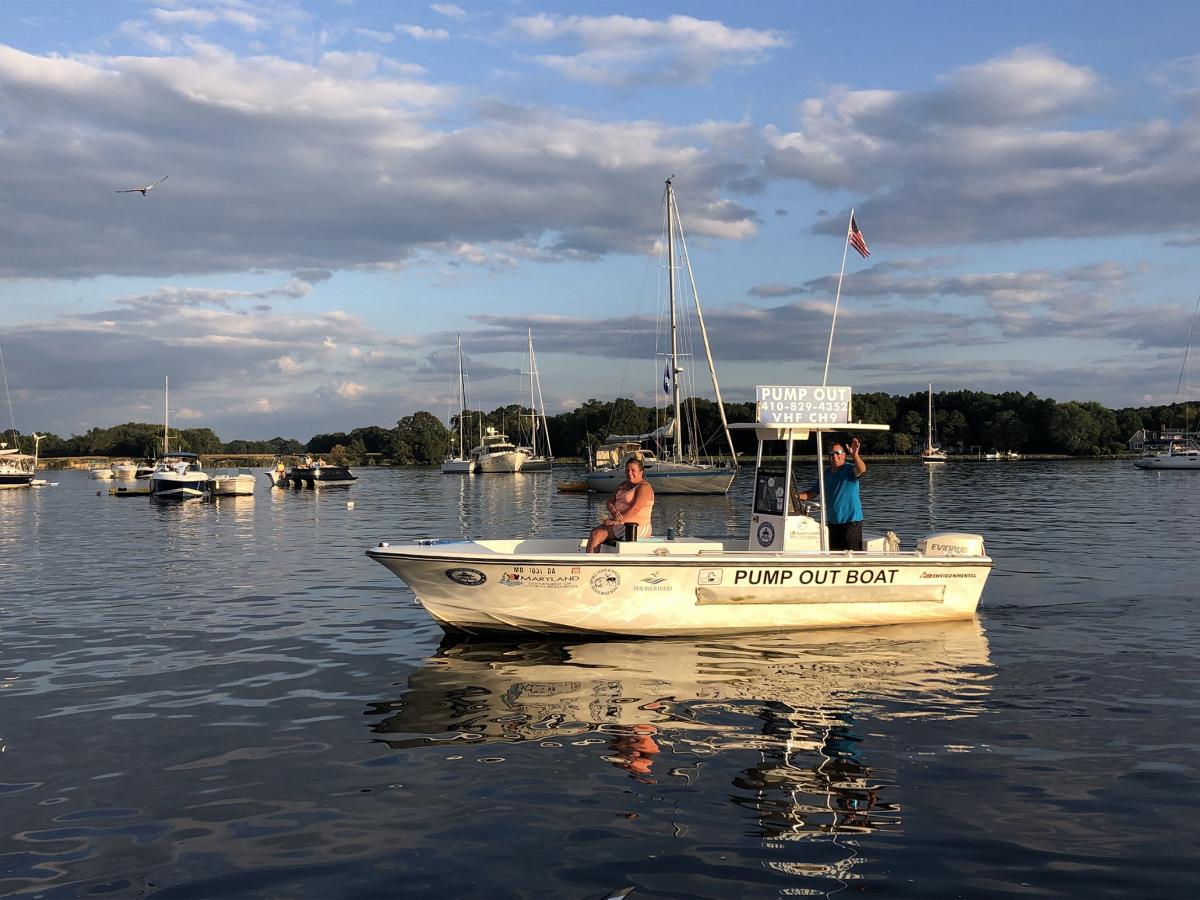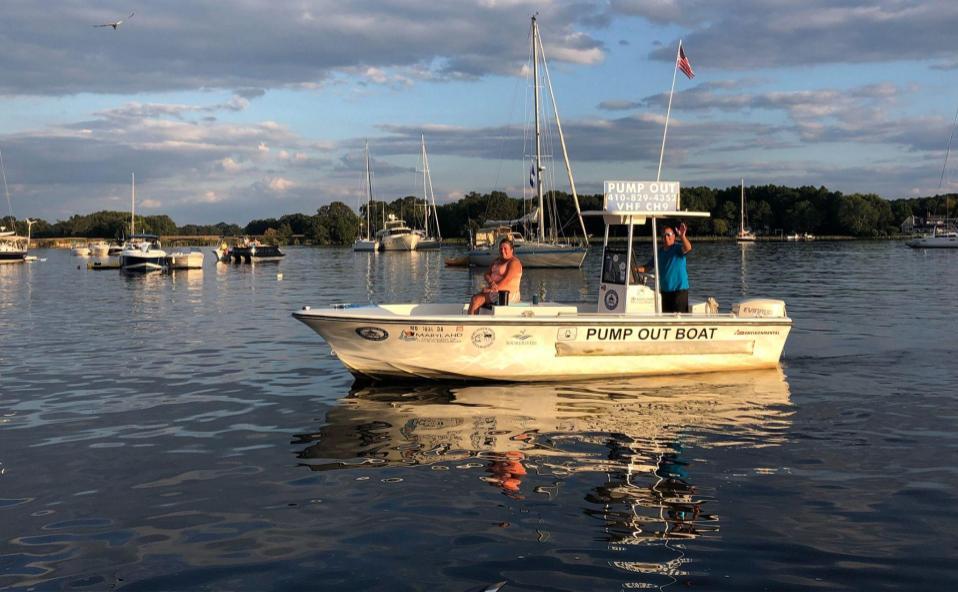
Choptank Riverkeeper Matt Pluta holds water quality samples.
Every summer, ShoreRivers deploys a team of citizen scientists to monitor bacteria levels at popular swimming and boating sites to provide important human health risk information to the public. View the results every Friday from Memorial Day to Labor Day at theswimguide.org and get updates during swim season by following#SwimmableShoreRivers or your local Riverkeeper’s page on social media.
The results from the 2021 SwimTester season show that bacteria levels vary based on location, land use, and weather; making systematic, scientific analysis of local water quality vital. Major rain events are almost always connected to spikes in bacteria levels, and outgoing tides have a higher probability of carrying bacteria pollution. In fact, our testing shows that almost 50% of the samples that failed in 2021 occurred after a major rain event on an outgoing tide. Meaning, a swimming spot is more likely to contain bacteria levels over the EPA’s threshold for safe swimming on an outgoing tide after a rain event—important information to know!
This public service provided by ShoreRivers truly is a community effort: this summer, 54 SwimTesters will monitor 40 sites on the Choptank, Miles, Wye, Chester, and Sassafras Rivers, Eastern Bay, and the Bayside Creeks. Generous site sponsors—including towns, marinas, homeowner’s associations, and families—help cover the sampling costs of $640 per site for one season. The Cornell Douglas Foundation provided funding to purchase state-of-the-art bacteria processing equipment and is supporting ShoreRivers’ efforts to reach more diverse communities, including translating bacteria information into Spanish. Thank you to everyone who is a part of this important effort!
Volunteer SwimTesters collect water samples weekly, which are then processed according to standard scientific protocols in ShoreRivers in-house labs. The program follows EPA’s standard protocols for collecting and analyzing samples and uses a pass/fail system to determine if bacteria levels are safe or unsafe for swimming.
Multiple years of consistent bacteria monitoring have highlighted those sites that frequently show elevated levels of bacteria, potentially indicating a chronic source of bacteria pollution. Potential chronic sources of bacteria include failing septic systems, overflows or leaks from wastewater treatment plants, waste from animal farms, or manure fertilizer. Acute sources of bacteria pollution include overflows from wastewater treatment plants and pet or wild animal waste.

The ShoreRivers Pumpout Boat is a FREE SERVICE offered on the Miles and Wye Rivers operating from May to mid-October.
Additionally, the 2022 Pumpout Boat season on the Miles and Wye Rivers begins on Memorial Day weekend. The ShoreRivers Pumpout Boat is a FREE SERVICE offered on the Miles and Wye Rivers operating from May to mid-October. With your help, this boat will help prevent more than 20,000 gallons of concentrated marine waste from entering our waters annually. To schedule a pump-out, contact Captain Jim Freeman at 410-829-4352, on VHF Channel 9, email [email protected], or visit ShoreRivers.org/programs/pumpout-boat.
ShoreRivers protects and restores Eastern Shore waterways through science-based advocacy, restoration, and education.
shorerivers.org



Write a Letter to the Editor on this Article
We encourage readers to offer their point of view on this article by submitting the following form. Editing is sometimes necessary and is done at the discretion of the editorial staff.